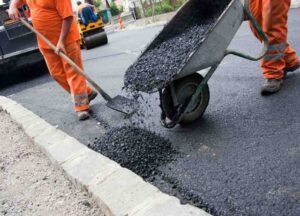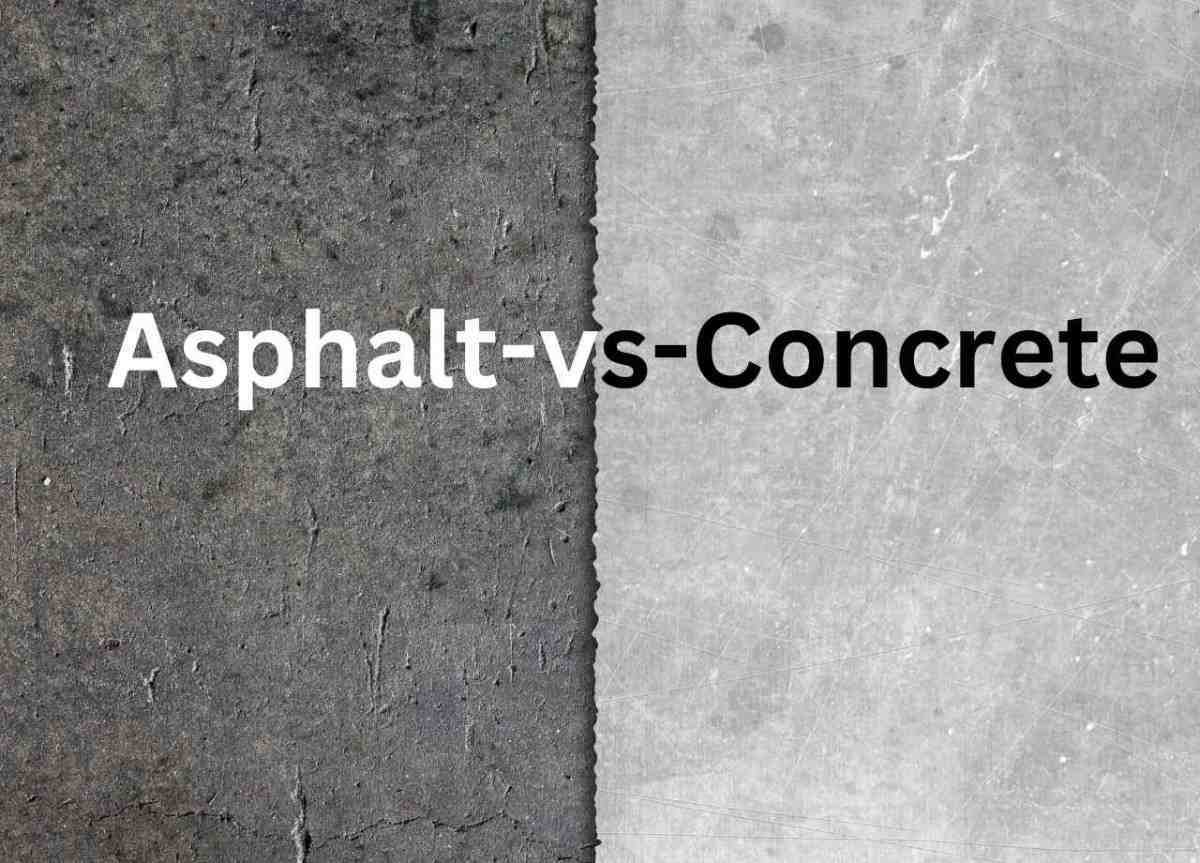Commercial Facilities: Which is Best – Concrete or Asphalt?
Choosing between concrete and asphalt for a commercial property isn’t just about looks—it’s about long-term costs, durability, and how well it holds up to daily operations. The right choice can mean years of reliable performance with minimal upkeep, while the wrong one could lead to frequent repairs, safety risks, and unnecessary expenses.
Parking lots, driveways, loading docks, and access roads all play a key role in a facility’s daily operations. Each material has distinct advantages, but selecting the right one depends on climate, traffic load, long-term maintenance costs, and business needs. Understanding the pros and cons of asphalt and concrete will help property owners and facility managers make the best decision.
Which Material Lasts Longer? Durability & Performance Breakdown
Durability is one of the most important considerations when investing in paved surfaces. Concrete and asphalt offer different strengths, and choosing the right material depends on traffic volume, climate, and maintenance priorities.
- Concrete’s Strength & Load Capacity – Concrete provides superior strength, making it ideal for heavy truck traffic, warehouses, and industrial sites. It resists deformation under extreme weight and holds up well in high-temperature environments, where asphalt may soften.
- Asphalt’s Flexibility & Cold Weather Performance – Asphalt is more flexible than concrete, which helps it withstand freeze-thaw cycles in colder climates. Because it expands and contracts more easily, asphalt is less prone to cracking in areas with frequent temperature changes.
- Slip Resistance & Safety Considerations – Concrete with a textured finish provides excellent traction for both vehicles and pedestrians, reducing the risk of slips and skidding. Asphalt, when properly maintained, also offers good traction, but aging and surface wear can lead to a smoother texture over time, which may require resurfacing.
Need a Fast Installation? How Asphalt and Concrete Compare
For businesses operating on a tight schedule, installation time is a major factor. The faster a surface is ready for use, the less disruption to operations.
- Asphalt’s Quick Installation & Minimal Downtime – Asphalt is known for fast installation. A new asphalt lot can be ready for use within 24 to 48 hours, making it an excellent choice for businesses that need a functional lot as soon as possible.
- Concrete’s Longer Curing Time – Concrete requires a longer curing period to reach full strength, often taking several days to a week before it can handle heavy loads. While concrete’s durability makes it a solid long-term investment, businesses needing quick turnarounds may find this delay inconvenient.
For facilities undergoing phased improvements, asphalt provides flexibility, allowing sections to be resurfaced quickly without major disruptions to parking and access routes.
The Real Cost Over Time: Asphalt vs. Concrete Maintenance
While both materials require maintenance, the type and frequency of repairs affect long-term costs.

Asphalt Requires More Frequent Maintenance
- Sealcoating every 2 to 3 years extends its lifespan.
- Potholes and cracks are common but can be patched easily.
- Resurfacing may be needed every 10 to 15 years.
Concrete Has Higher Repair Costs but Lasts Longer
- Cracks develop less frequently but are more expensive to repair.
- Concrete can last 30 to 40 years with proper care.
- Expansion joints need regular inspections to prevent water damage.
Asphalt costs less upfront, but requires more frequent maintenance. Concrete is a bigger initial investment but offers longer durability with fewer repairs.
Potholes, Drainage, and Surface Damage Risks
Potholes form when water seeps into the pavement, weakens the base, and creates gaps that collapse under pressure.
- Asphalt is More Prone to Potholes
Without regular maintenance, asphalt deteriorates due to water infiltration and vehicle weight. However, repairs are relatively simple and cost-effective.
- Concrete Resists Pothole Formation
Concrete’s rigid structure prevents sinking and pothole formation, but cracks in expansion joints can allow water penetration, leading to weakened sections over time.
Drainage also plays a critical role. Porous asphalt options help with water absorption, while concrete requires proper grading and drainage planning to prevent pooling.
Asphalt vs. Concrete: What’s More Budget-Friendly?
Budget often plays a decisive role in material selection.
- Asphalt Has a Lower Initial Cost
Asphalt typically costs less per square foot, making it ideal for businesses with upfront budget constraints.
- Concrete Offers Long-Term Savings
Although concrete is more expensive initially, it requires less maintenance and has a longer lifespan, leading to lower costs over time.
For businesses focused on immediate cost savings, asphalt is the best choice. If long-term durability is the priority, concrete is the better investment.
So, What’s the Best Choice for Your Facility?
Choosing the best material comes down to specific business needs:
- Choose asphalt if you need quick installation, lower upfront costs, and flexibility for cold climates.
- Choose concrete if you want durability, lower long-term maintenance costs, and better load-bearing capacity.
Expert Asphalt Solutions for Commercial Facilities
Asphalt is often the preferred choice for businesses needing a cost-effective, quick-to-install, and durable paving solution. At National Facility Contractors, we specialize in asphalt installation, resurfacing, and maintenance services designed to extend the lifespan of your lot while minimizing repair costs. Our team ensures proper grading, drainage, and sealcoating to keep your asphalt surface in top condition.
Both materials have clear advantages, but making the right choice requires expert guidance. Contact National Facility Contractors today to assess your property’s needs and develop a paving solution that fits your business goals.







